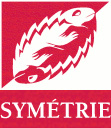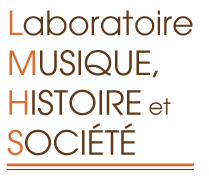Théories de la composition musicale au XXe siècle
Ce projet éditorial commencé en 2003 visait à publier un panorama substantiel des principales théories compositionnelles du XXe siècle. Alors que certains corpus théoriques ont été largement diffusés et commentés (Schoenberg, Xenakis, Boulez, Stockhausen...), d’autres, tout aussi importants pour l’histoire et l’esthétique musicales, restent mal connus faute d’introductions synthétiques disponibles. Musiciens et musicologues ne disposaient pas, à ce jour, d’un ouvrage de référence sur la relation féconde entre composition et théorie au cours du siècle passé.
Pourtant, la fécondité de cette relation a été déterminante dans le développement de la musique contemporaine, et notamment de l’informatique musicale. Croisant musicologie historique, exégèse des corpus théoriques et analyse musicale, l’ouvrage dirigé par N. Donin et L. Feneyrou comble le manque actuel d’une publication collective de référence sur les théories compositionnelles d’un siècle caractérisé par l’abondance des écrits de créateurs, des recherches sur les systèmes de composition, et des manifestes esthétiques définissant techniques et technologies musicales.
Une soixantaine de spécialistes internationaux a été réunie pour traiter, d’une part, des théories compositionnelles spécifiques d’individus (ou d’écoles), de Schoenberg à Rihm en passant par Hindemith ou Carter ; d’autre part, des catégories et problématiques ayant émergé au long du siècle, telles que : « musique algorithmique », « live electronics », « théâtre musical », « spectralisme », etc. De nombreux corpus inconnus en langue française, et parfois inédits, sont présents aux côtés de thématiques mieux explorées par la musicologie au cours des quarante dernières années.
Les contributions proposent un exposé synthétique, à la fois technique et historique, de ces notions et/ou doctrines, en se basant à chaque fois sur l’état actuel des connaissances à propos des articles, manifestes, etc., des compositeurs étudiés. Les participants, par leur diversité, reflètent les différents aspects de la musicologie vingtiémiste, de Philippe Albèra à Elena Ungeheuer, d’Angelo Orcalli à Richard Toop. L’ouvrage, composé de deux tomes d’environ 900 pages chacun, est paru aux éditions Symétrie fin 2013.
Équipes Ircam : Analyse des pratiques musicales.










